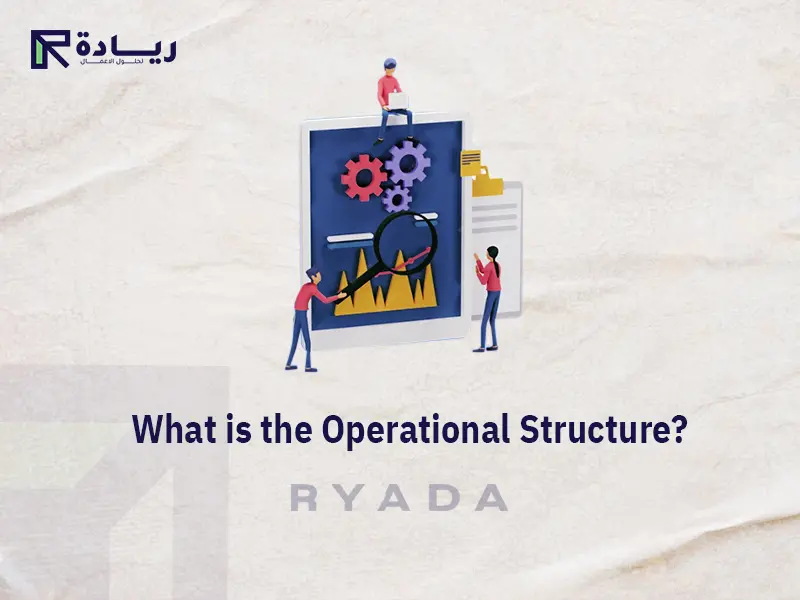Definition of operational plan
What is the operational plan?, When an organization seeks to achieve its objectives, the overall vision may be transformed into practical steps through the operational plan. It is the core of success in the business world. It is also the road map that translates major strategies into concrete daily activities. Its role is not only to guide efforts, but also to align human and financial resources with specific objectives. So if you look to improve your enterprise’s performance and increase its efficiency, understanding and preparing the operational plan carefully and accurately can be the decisive factor for success.
The operational plan is not just a traditional document prepared solely for commitment. It is one of the important vital tools that help to transform innovative ideas into reality. This plan begins by identifying the main objectives that an enterprise seeks to achieve over a specified period of time. These objectives are then translated into detailed steps and a timetable that defines tasks and responsibilities. This enables major companies and institutions to effectively pursue their performance and progress.
The preparation of a successful operational plan always requires a deep understanding of all the needs of the market and the nature of this enterprise along with the flexibility and adaptability that you should have to adapt to the sudden changes and challenges that the enterprise may face. Indeed, it is keen to do a leading website that offers a lot of tools and advice that entrepreneurs need to analyze their current situation and develop an integrated operational plan.
Key elements of the operational plan

If you are seeking success in your own business or project, the operational plan is the key to achieving all the desired goals. It is the bridge that connects big strategies with practical implementation on the ground. It may also contribute greatly to turning innovative ideas into clear actions and careful steps. Without it, efforts may be lost and objectives far from being reached. How can you prepare an effective operational plan? This is what we will recognize in the next lines as we will clarify the basic elements of the plan:
First, set the detailed objectives:
Initially you may have to set short- and medium-term goals precisely taking into account their alignment with the strategic objectives of the project or work.
Secondly, the distribution of functions and responsibilities:
Then you must identify responsibilities and assign tasks to the task force while specifying the clear roles of each individual to ensure that the procedures are carried out smoothly and effectively.
Third, identify the resources required:
After that you must ensure that all the human, financial and material resources necessary for the implementation of the plan are accounted for while putting in place a mechanism to effectively invest them.
Fourth, establish a timetable:
Then you have to set a specific time frame for the implementation of each task which helps track progress and ensure deadlines are met.
Fifth, identifying performance indicators:
Then you must identify performance measurement indicators to monitor progress and ensure that goals are achieved with quality and efficiency.
Sixth, evaluating and making adjustments:
Then you need to review the operational plan regularly to evaluate performance and make the necessary adjustments based on changes in circumstances or priorities.
Read also: Exploring industrial entrepreneurship
Operational Plan Objectives
Operational plans play an important and vital role in achieving institutional success and ensuring smooth and effective functioning. Not only are they documents or management steps, they are a practical roadmap that leads organizations towards achieving their own strategic objectives. In our increasingly competitive world, the operational plan is an imperative and not an option. It helps guide efforts and rationalize resources in a way that ensures the highest productivity and quality.
Guide human and financial resources thoughtfully to ensure efficiency and maximize utilization.
Identify key priorities in day-to-day operations to facilitate follow-up on implementation and evaluate actual performance.
Ensure compatibility with the organization’s overall strategic objectives to promote harmony between different levels of work.
Improve decision-making by providing accurate data and clear plans.
Enhance the organization’s resilience and adaptability to environmental changes and future challenges.
Raise customer satisfaction by providing professional and standards-compliant services or products.
Reduce waste and increase return on investment by improving processes and reducing errors.
The importance of having an operational plan
The operational plan is the backbone of the success of any organization seeking to achieve its objectives efficiently and effectively. Without a clear operational plan, efforts are dispersed, resulting in waste of resources and loss of opportunities, as well as weak ability to meet challenges and balance priorities. The operational plan is not only important to improve daily performance. But it extends to ensuring long-term sustainability. Here are some of the advantages of having an operational plan:
Improving efficiency and effectiveness:
By organizing efforts and clearly distributing tasks, the Operational Plan enables organizations to reduce loss of time and resources by helping to prioritize and balance needs and capabilities, which directly reflects the quality of services and products provided.
Achieving strategic objectives:
The operational plan serves as a bridge between future vision and day-to-day goals, contributing to ensuring long-term strategic plans and detailing the practical steps required to achieve the organization’s vision while monitoring and correcting performance when needed.
Effective risk management:
Everyone knows that the OP is not just a means of regulation but one of the important vital tools that contribute to risk management by analyzing the internal and external environment and also helps identify potential challenges and develop strategies to deal with them, reducing their impact and enhancing the organization’s resilience.
How to prepare an effective operational plan
The development of an effective operational plan is one of the key elements that greatly contribute to the success of any project or work. A good operational plan is the compass that directs teams and resources towards the desired goals. This contributes to improving performance and increasing productivity. So if you seek excellence and excellence in your own project, you need to know how to prepare a tight operational plan is the first and key step to achieving that goal.
The first step in the preparation of the operational plan is to set objectives clearly and precisely. The objectives should be measurable and realistic, specifying the time limits within which they will then be achieved. The major objectives should be divided into smaller tasks so that they can be easily implemented and the responsibilities for each individual or section concerned are determined. budget and personnel, while ensuring that they are allocated in a manner that supports the plan’s efficient implementation.
As for the planning tools used, there are lots and lots of tools you can use such as agendas and project management programs such as “Trillo” or “Microsoft Project” which helps track the progress of work and ensure that tasks are performed on time. You may also rely on mind maps to organize ideas or use analysis. “SWOT” to identify strengths, weaknesses, opportunities and threats that help to develop a clearer, holistic plan.
Do not forget the importance of the ongoing review and evaluation phase, since the operational plan must be reviewed periodically and continuously to ensure that everything goes as planned and that any problems that may arise to contribute to achieving the desired results should be resolved more efficiently.
Elements of the operational plan
The operational plan is one of the important pillars that contributes greatly and effectively to the success of any new project. It is the compass that guides all efforts towards achieving the specific goals and ensures effective coordination between all the different resources and activities, but how can we develop a successful and elaborate operational plan? This is what we will recognize in the following:
It may begin with clearly defined goals where specific and measurable targets contribute to the proper direction of activities and resources. Without clear objectives, it is difficult to know whether efforts are being made in the right direction.
Thereafter, the allocation of the necessary resources, which requires the identification of the human, financial and material resources that will be necessary for the implementation of the plan, since the exact and effective channelling of resources can maximize their utilization and thus increase the chances of success, but you need to know that this step always requires you to understand in depth all the needs of each stage of implementation and sometimes need to be modified or redistributed if unexpected changes occur.
Next comes the timetable, which is one of the critical factors contributing to the success of the plan. It helps to determine the timing of each step of implementing the operational plan. It also contributes to effectively tracking the progress of work and ensuring that none of the activities are delayed. It also helps to prioritize and organize time in a way that prevents overlapping tasks.
implementation of the operational plan
No enterprise or project can achieve sustainable success without the implementation of the Tribunal’s operational plan. It is not only an organizational document but a cornerstone of achieving the objectives of action and continuous development, but what does the effective implementation of this plan mean? How can we ensure its success? The answer is simple and lies in accurate identification of responsibilities, careful follow-up and continuous performance appraisal as these elements help improve processes and develop performance permanently.
Clearly define responsibilities and prepare the first step for the effective implementation of the Tribunal’s operational plan. Everyone in the team must be fully aware of their day-to-day responsibilities and tasks. This helps to accelerate procedures and avoid duplication of work.
Next comes the follow-up and ongoing evaluation step, which should be regularly evaluated to ensure that operations are proceeding as planned and to identify any challenges the team may face, enabling companies and institutions to make immediate decisions to adjust course or improve performance.
After the completion of this phase, one step remains: feedback, which is one of the most important steps in the implementation of the operational plan. It provides an opportunity to hear the views of the team, customers and beneficiaries of the service. Therefore, feedback may be an essential part of the business culture, thanks to which business strategies and planning can be adjusted to reflect the needs of the market and customers’ desires.
Challenges to the operational plan
The operational plan of an organization or project faces many major challenges that may directly affect the functioning and effectiveness of the work. The challenges are an integral part of any strategy aimed at achieving success and sustainable growth. The ability of the executive teams to adapt and innovate in addressing these challenges is tested. Here are the main challenges facing the operational plan:
The first challenge is to resist change by staff:
This challenge is one of the most significant challenges the operational plan can face as many individuals and organizations hesitate to adopt new methods or modify their familiar working methods, making it difficult to implement the required changes.
The second challenge is the lack of available resources:
One of the biggest obstacles to the implementation of the plan is that when adequate budget or human resources are not available, achieving operational objectives may become extremely difficult, forcing management to reduce or adjust the goals to suit existing capacities.
The third challenge is market volatility and its impact:
When the market faces economic changes or changes in demand for products and services, the operational plan becomes more vulnerable to a negative impact.
Improved operational plan

Improving the operational plan is one of the critical steps towards achieving success and sustainability in an organization. It is also one of the key elements to ensure smooth and effective functioning and with the advancement and development of technology, it is necessary for all companies to integrate technical tools into their business strategies to contribute to improving productivity and performance quality. But improving the operational plan may require much strategic thinking, which may include several aspects such as the use of technology in the planning, training and continuous development of employees, as applying accurate performance assessment mechanisms.
In today’s era, we may not lose sight of the role of technology in improving operational processes through specialized software. Daily processes and data analysis can be accelerated more accurately. This helps in making thoughtful decisions that contribute to enhancing efficiency. Modern applications always allow enterprises to track project progress and identify problems at early stages, as well as modify plans immediately if necessary.
As far as staff members are concerned, no sustainable improvement can be achieved without investing in their training and skills development. Continuous training always gives staff the ability to adapt to changes in the working environment and helps to raise productivity and innovation, thereby enhancing the operational plan’s success.
Performance appraisal mechanisms are then one of the key elements contributing to the improvement of the operational plan. We may find that through periodic staff evaluation, strong points can be identified that need to be strengthened and weaknesses that need to be improved. This helps to develop business strategies and correct errors promptly and ensures that the goals set are strictly achieved.
Read also: How to open a company in Saudi Arabia
What is the concept of the operational plan?
The Operational Plan is a strategic document through which day-to-day activities and actions that may need to be implemented to achieve the Organization’s goals in the short term can be identified. The Plan aims to organize resources, identify tasks and distribute them to different teams to ensure efficient functioning. It may include timetable, budget allocation and clarification of responsibilities, taking into account potential challenges and how to overcome them.
What is the difference between the strategic plan and the operational plan?
The difference in both the Strategic Plan and the Operational Plan lies in their respective objectives and scope of work. The Strategic Plan focuses on defining long-term objectives and the Organization’s future vision. It also serves as a road map for long-term success. The Operational Plan focuses on the actual implementation of these objectives by identifying the day-to-day activities and actions needed to achieve short- and medium-term goals.

